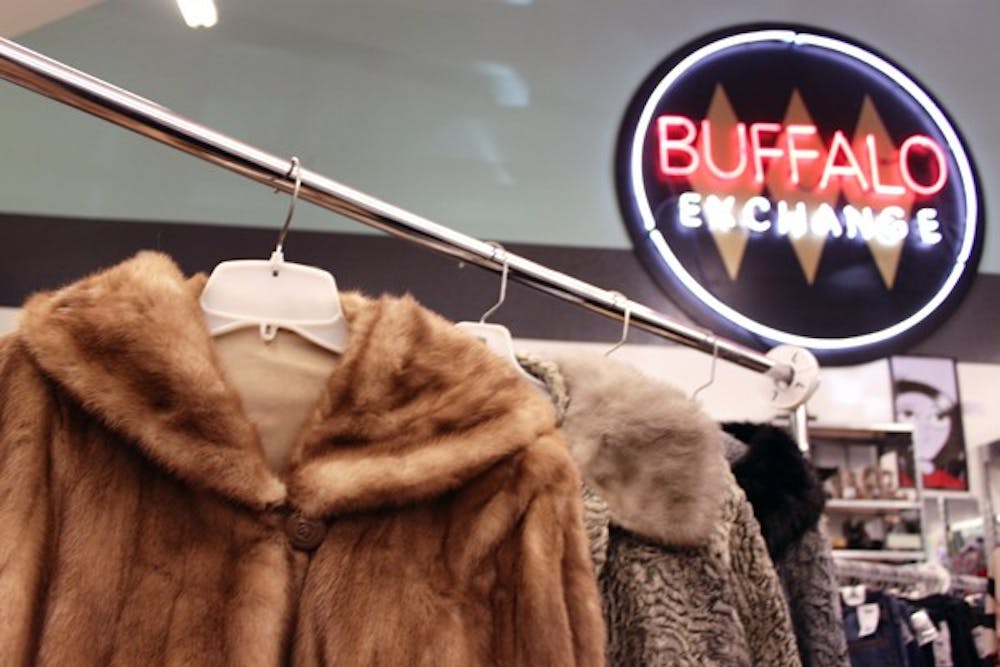Anti-fur advocates such as PETA spokesman Ryan Huling believe today’s society has no need for fur coats.
“I think there was certainly a time thousands of years ago where people needed to kill animals to stay warm, but thankfully society has progressed,” Huling said.
But the vestiges of the ancient style remain: many people inherit these coats, along with guilt over how they were made, Huling said.
To make positive use of these fur items in the backs of closets, Buffalo Exchange, a clothing consignment store near the Tempe and Downtown campuses, as well as nationwide locations will once again be accepting fur coats for the Coats for Cubs program.
Furs will be collected from Nov. 25 to April 22 and be donated to wildlife rehabilitation centers.
Buffalo Exchange Marketing Manager Michelle Livingston said the coats will be used to provide comfort to orphaned and injured wildlife.
“The wildlife rehabbers take the furs and put them in the bottom of the cage so (the animals) have some nice bedding,” Livingston said. “They feel like it could be their mom.”
Livingston said Buffalo Exchanges across the country have collected more than 6,000 fur coats to donate to the cause since 2006.
“You can really see they really appreciate having that warmth and comfort from the fur as opposed to the cold hard cage bars,” Livingston said.
The fur donations don’t have to be in perfect condition, but authentic fur is preferred to faux, Livingston said.
Microbiology junior Eman Fendi Mabrouk, president of Fashionistas at ASU, said when she was 18 years old she purchased an authentic fox fur and goat suede coat.
But one day in her sophomore year of college, Fendi said she came across an animal rights group tabling on the Tempe campus against the use of fur coats.
“They educated me on what they really do to animals to get the fur and I was disgusted,” Fendi said. “That was actually the last piece of fur I ever bought and never will again. That was before I knew the cruelty to the animals.”
For decades, animal rights groups have staged anti-fur campaigns, objecting to the capturing of live animals as well as so-called “fur farms,” where animals are bred for their fur.
“When we have so much leftover surplus of animals that have already been beaten and skinned, simply throwing them away isn’t necessarily the most productive thing we can do with those coats,” Huling said.
Fendi said she believes Buffalo Exchange’s program is a “phenomenal movement” and said she would like to donate.
“I would love to donate because I feel like crap having it. I’m definitely going to … encourage my Fashionistas to do the same,” Fendi said. “I think it’s great that they’re helping animals.”
Fendi said Fashionistas at ASU is anti-fur and anti-animal skin.
Michelle Parkhurst, general manager of Evan’s Furs and Leathers in Scottsdale, said she considers herself to be an advocate of fur in fashion but she believes the Coats for Cubs program is great.
“Now that I know about it, if I have customers come in whose garments can’t be worked on, I’ll probably direct them to that program,” Parkhurst said.
Huling said PETA runs a similar program where they donate fur coats to women and children freezing in Iraq and Afghanistan.
Reach the reporter at kmmandev@asu.edu
Click here to subscribe to the daily State Press newsletter.





